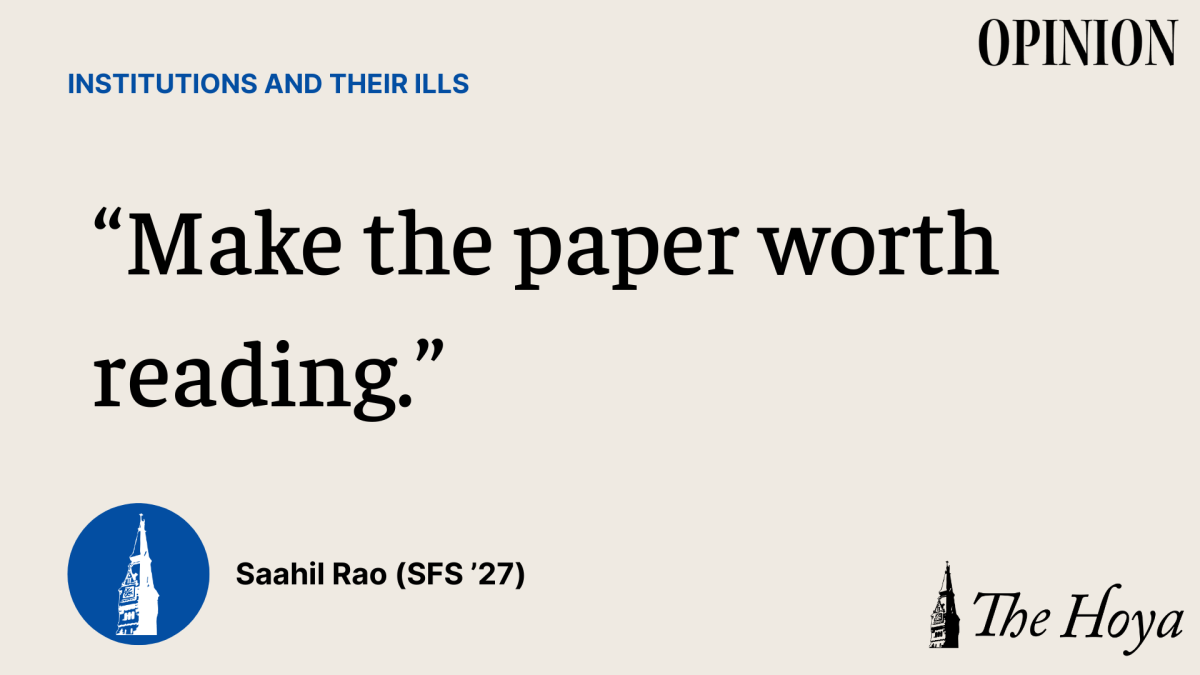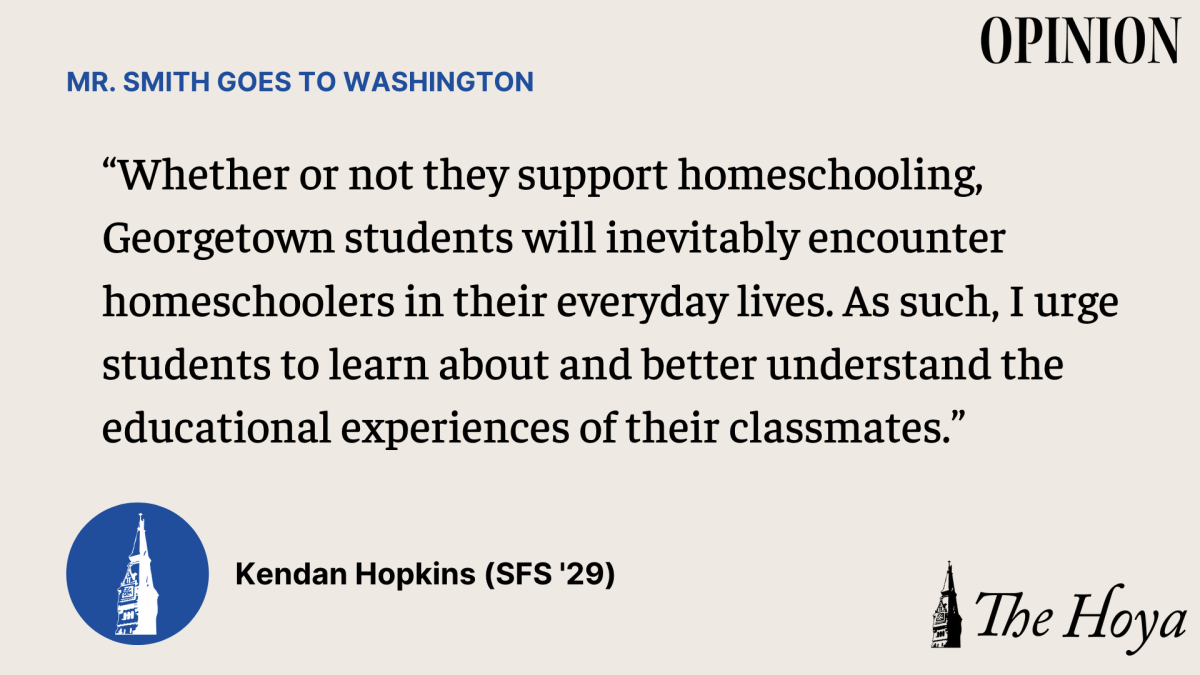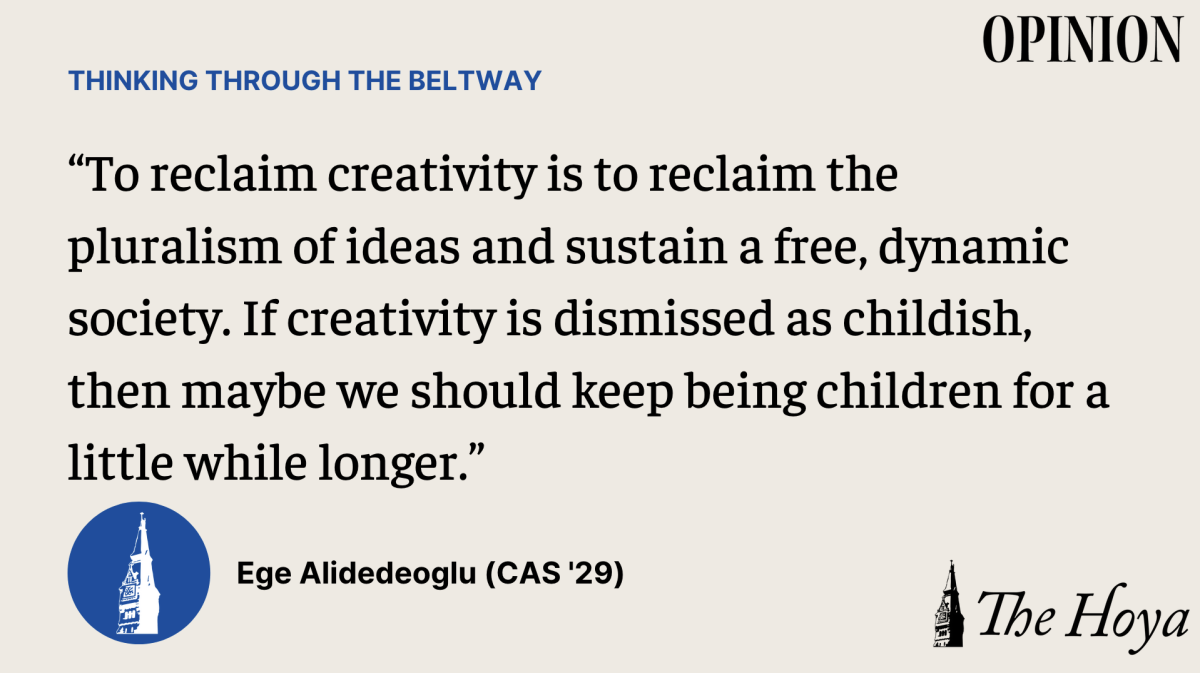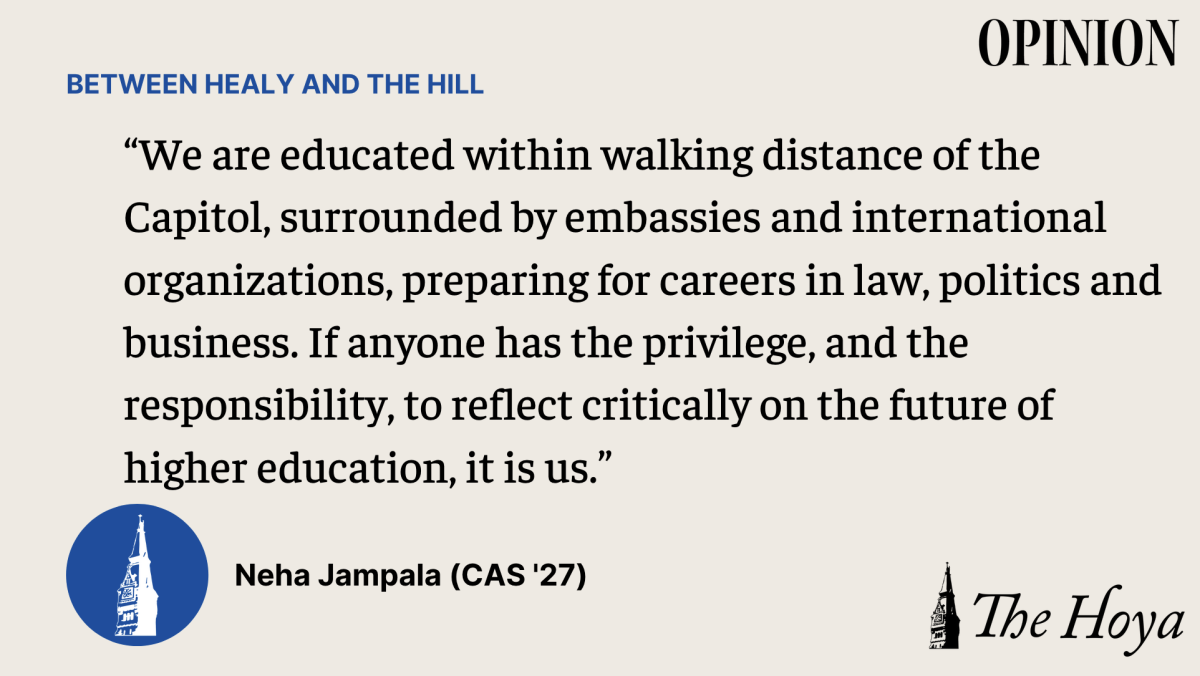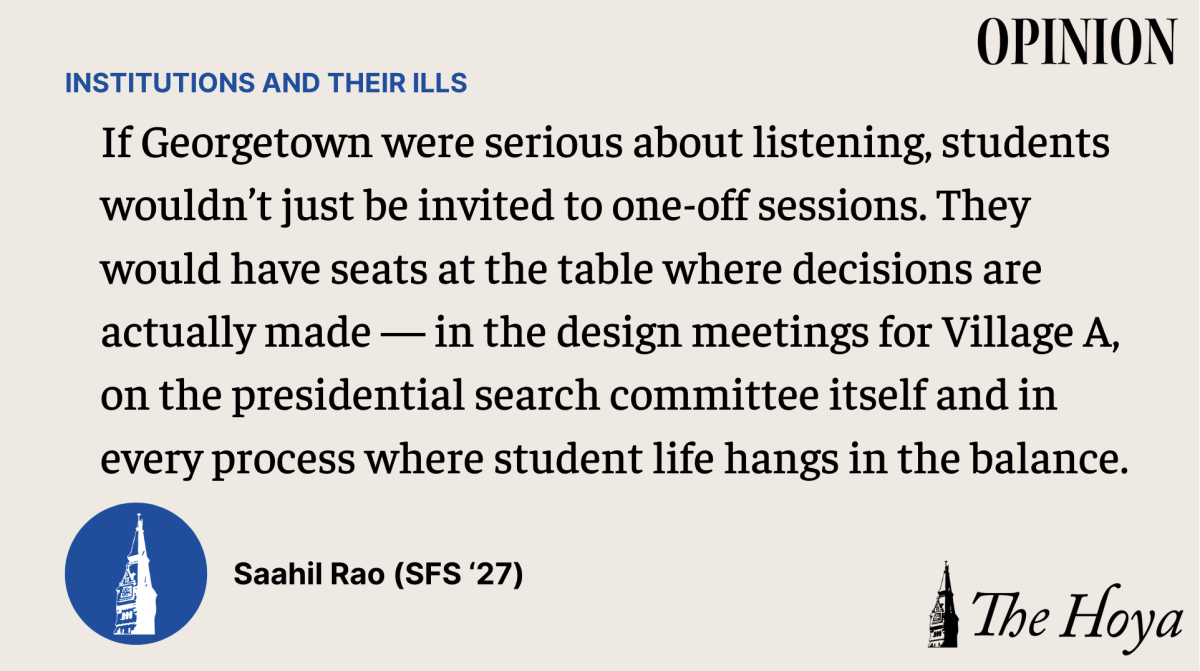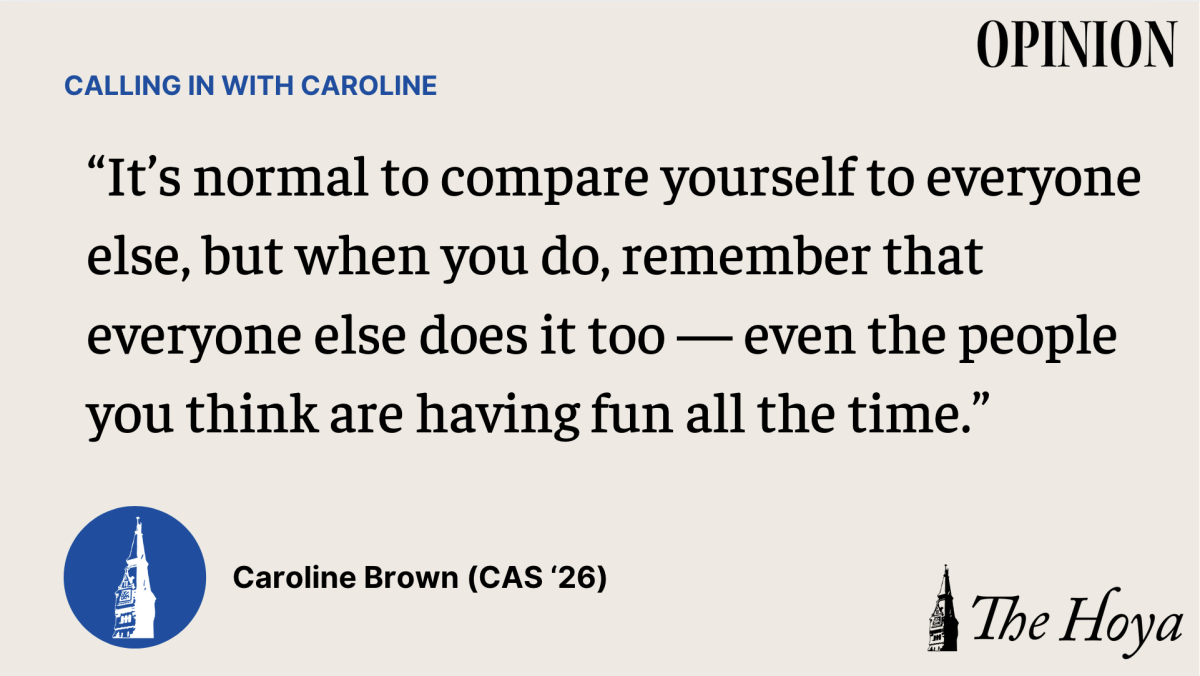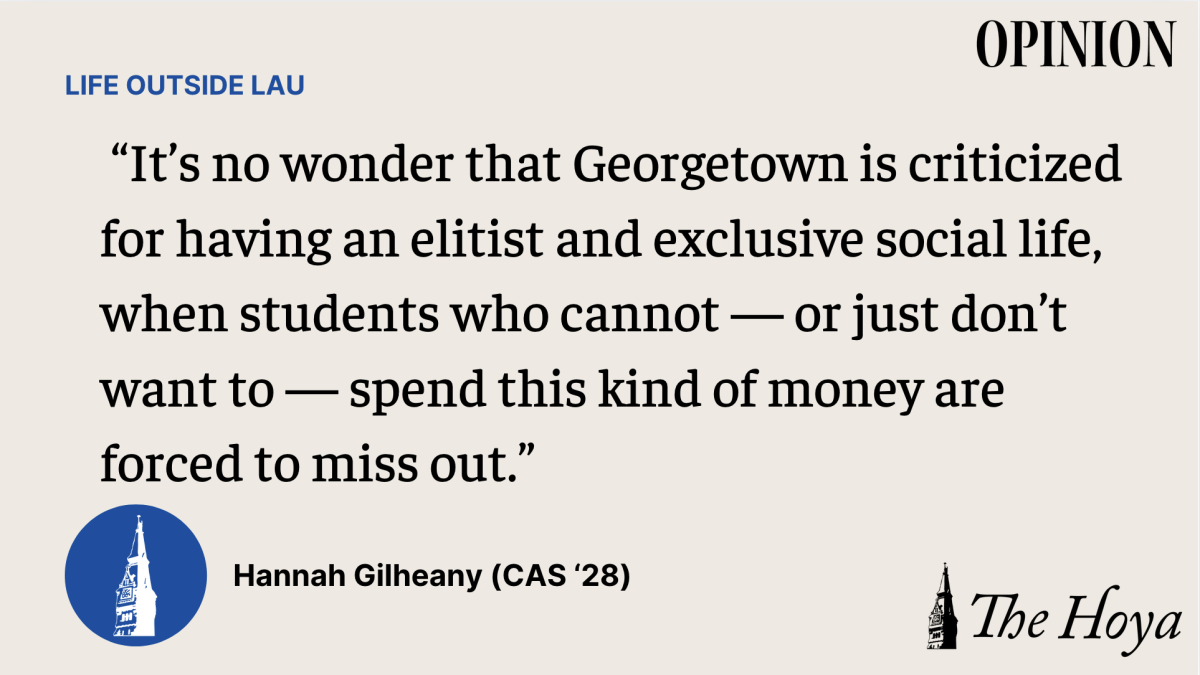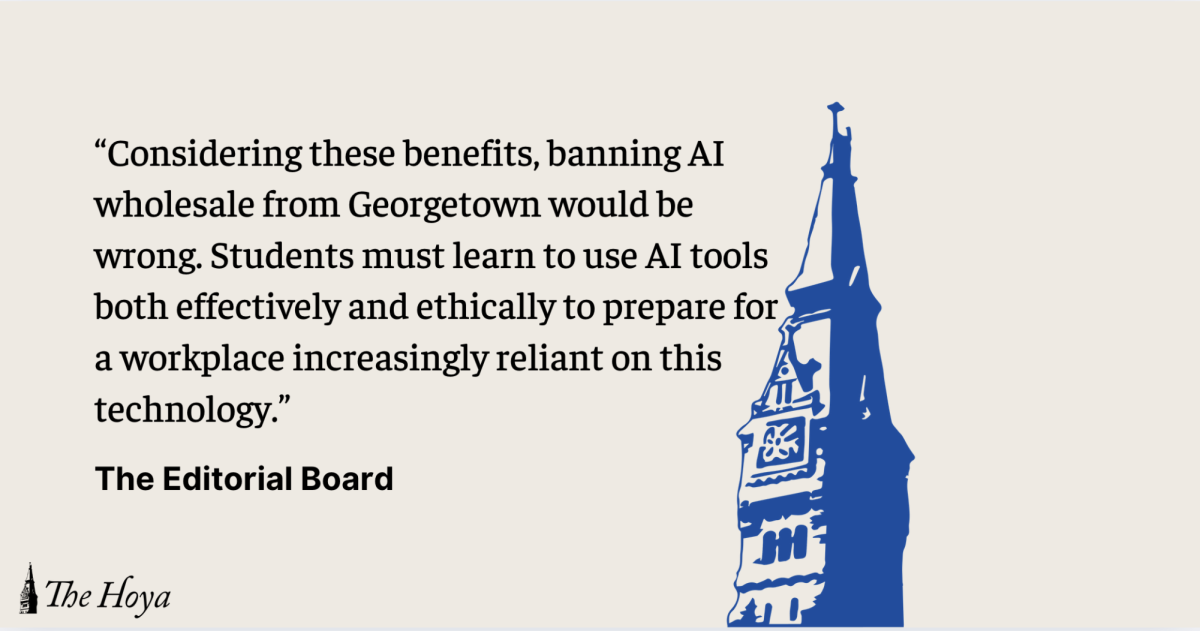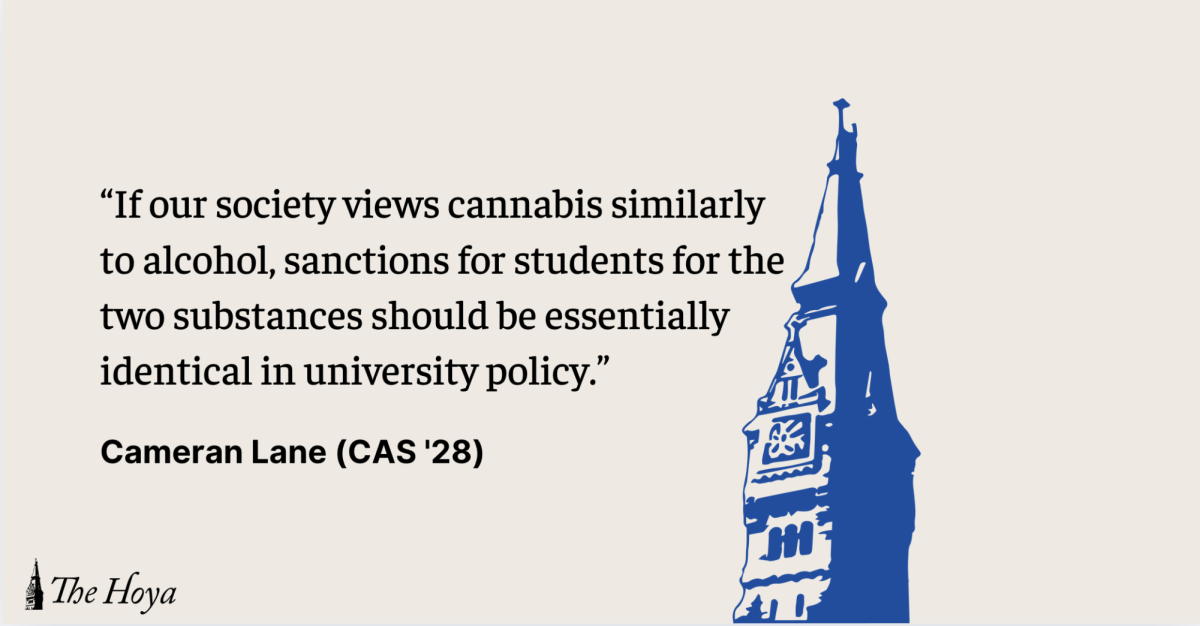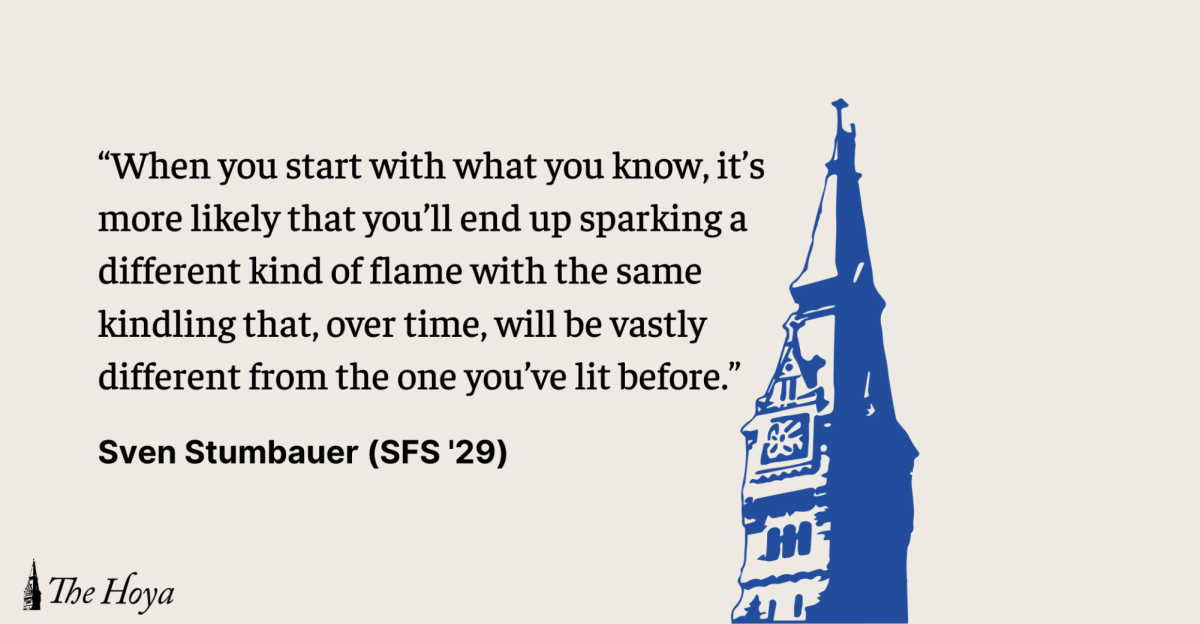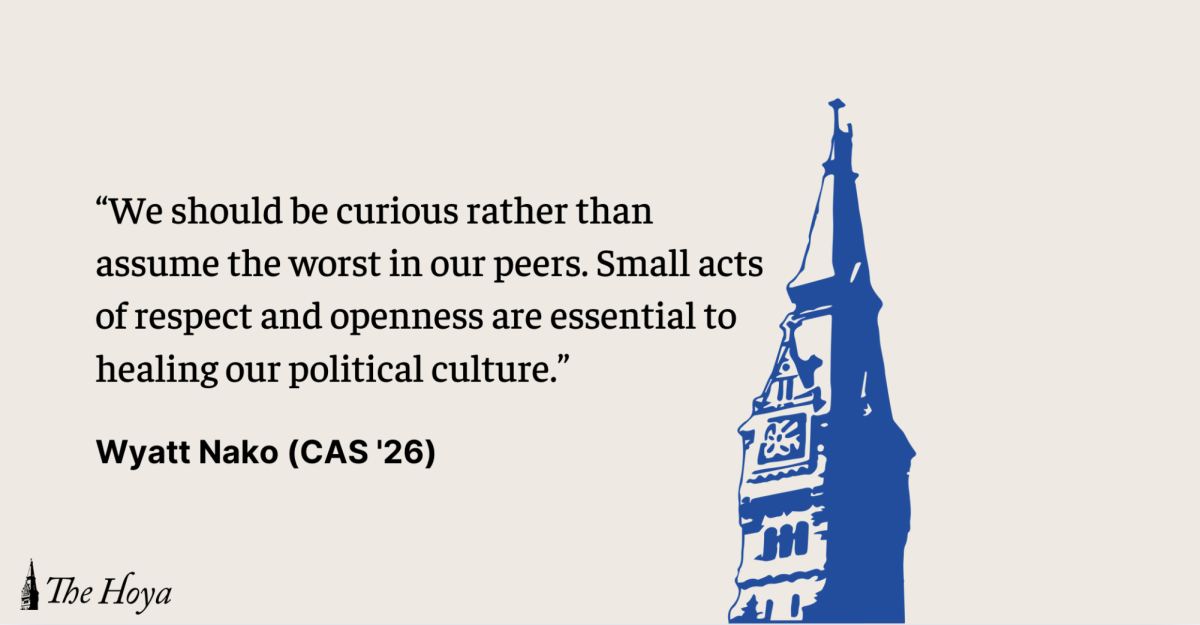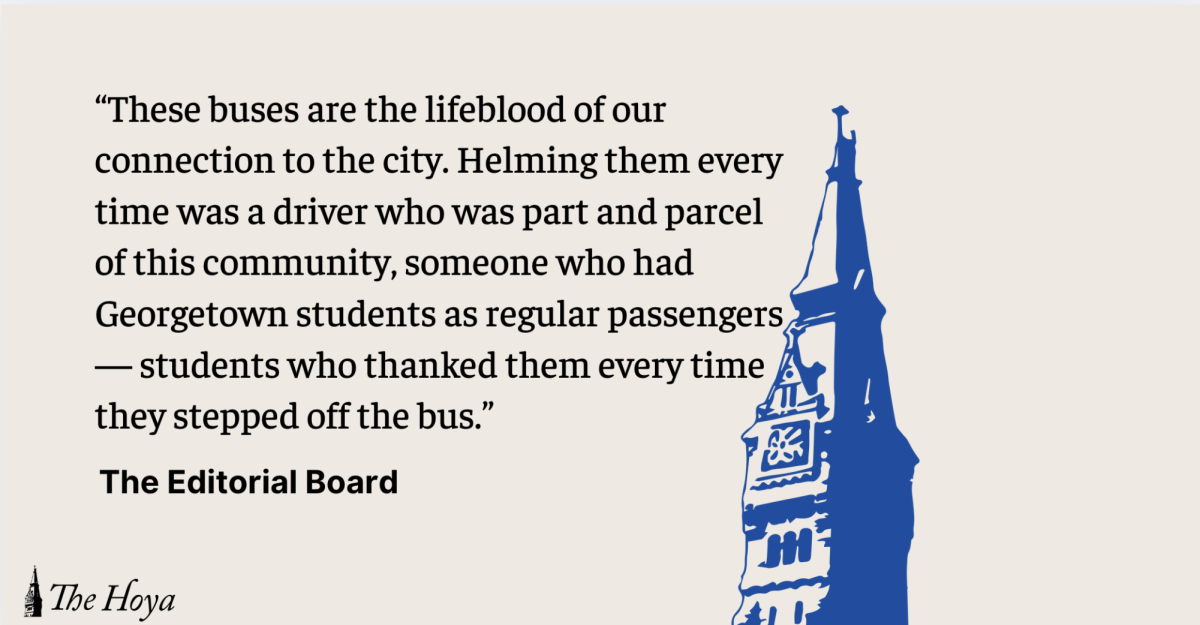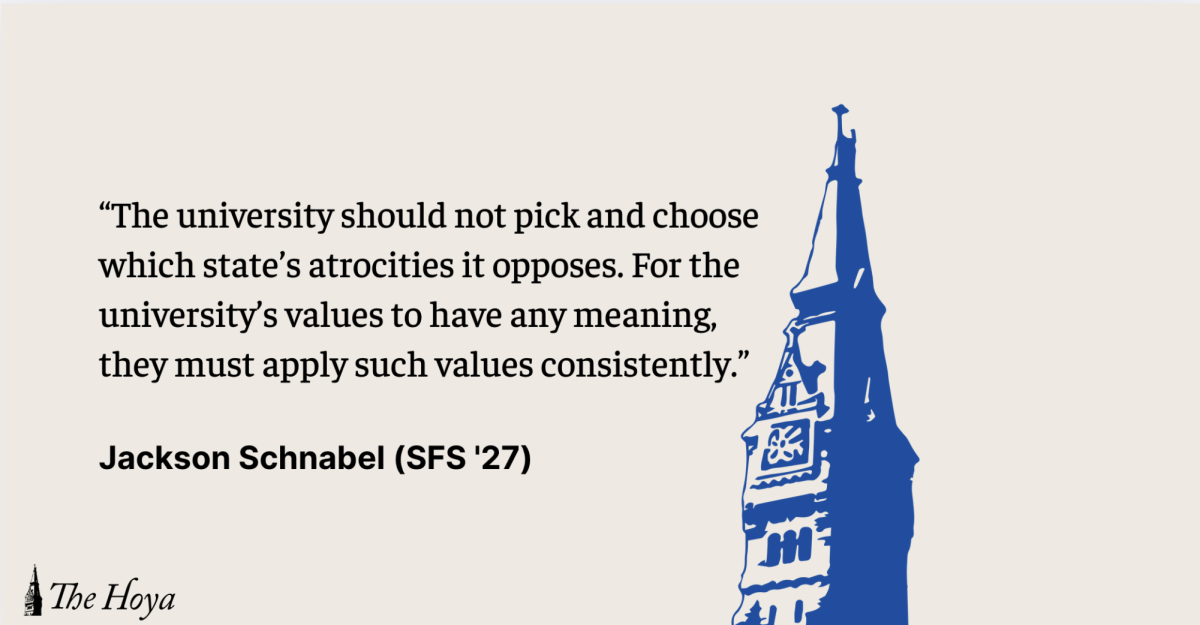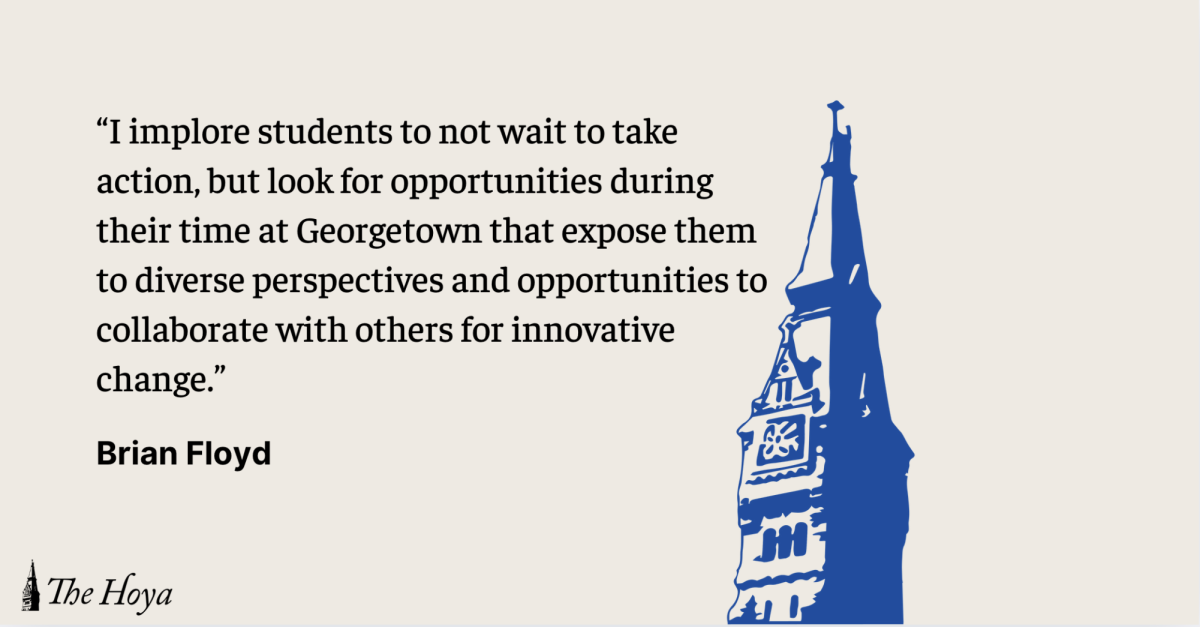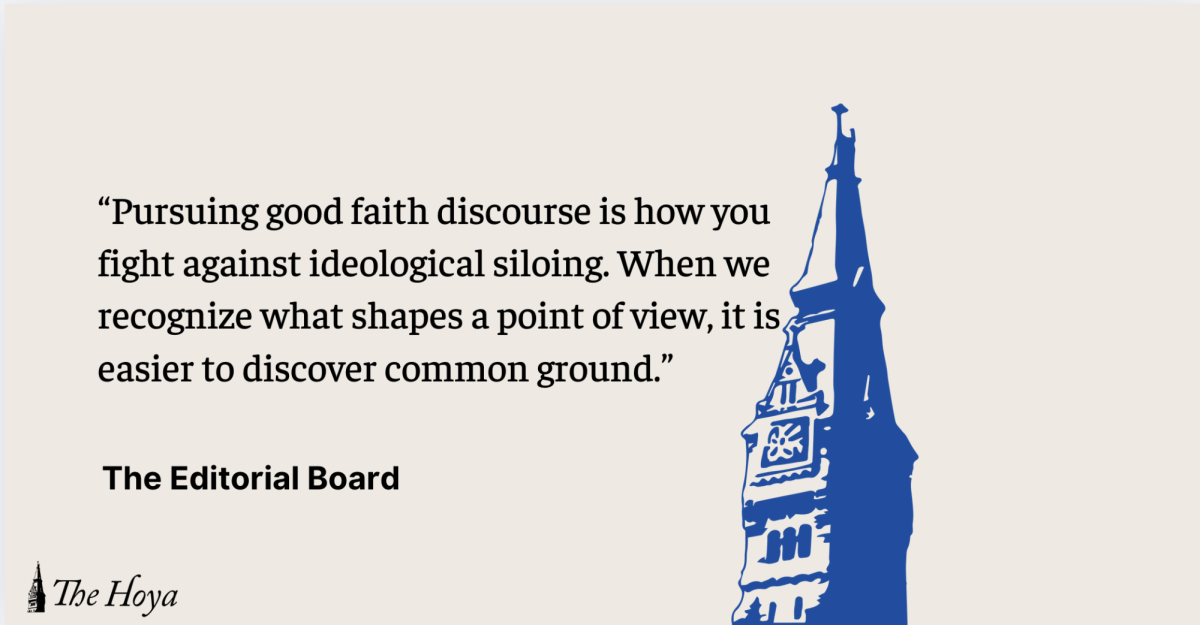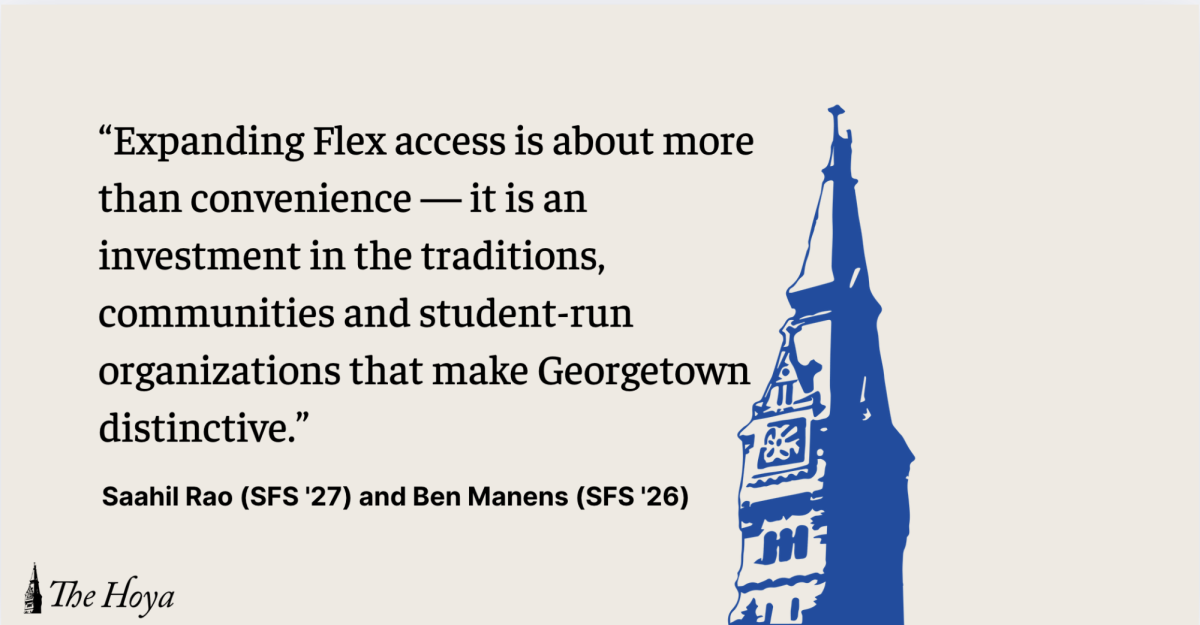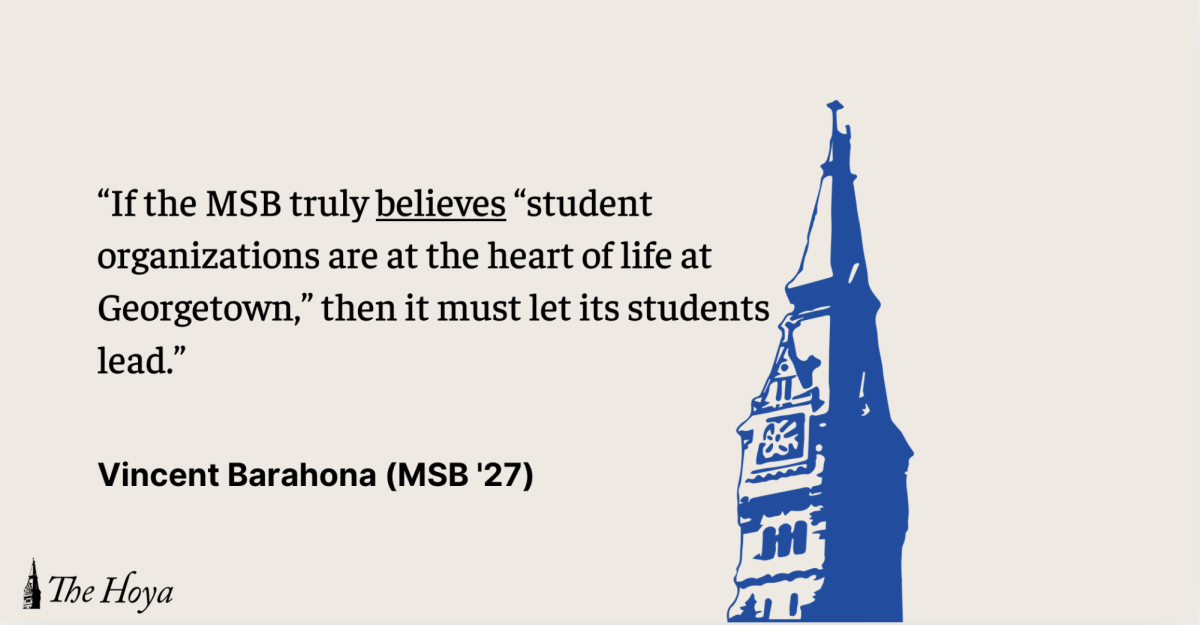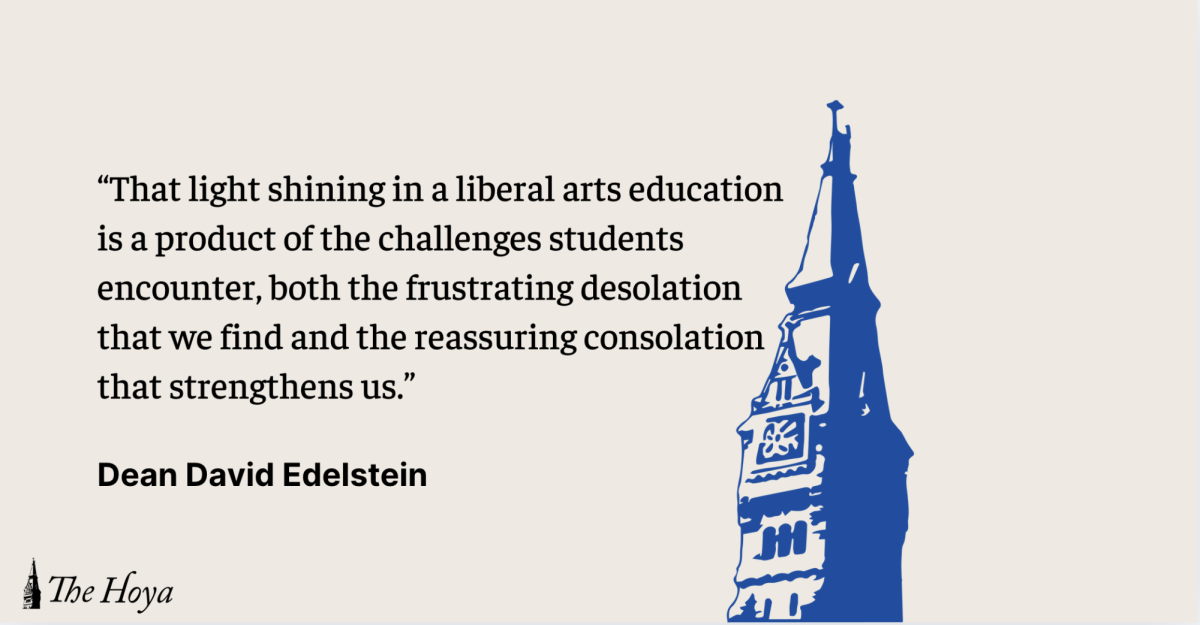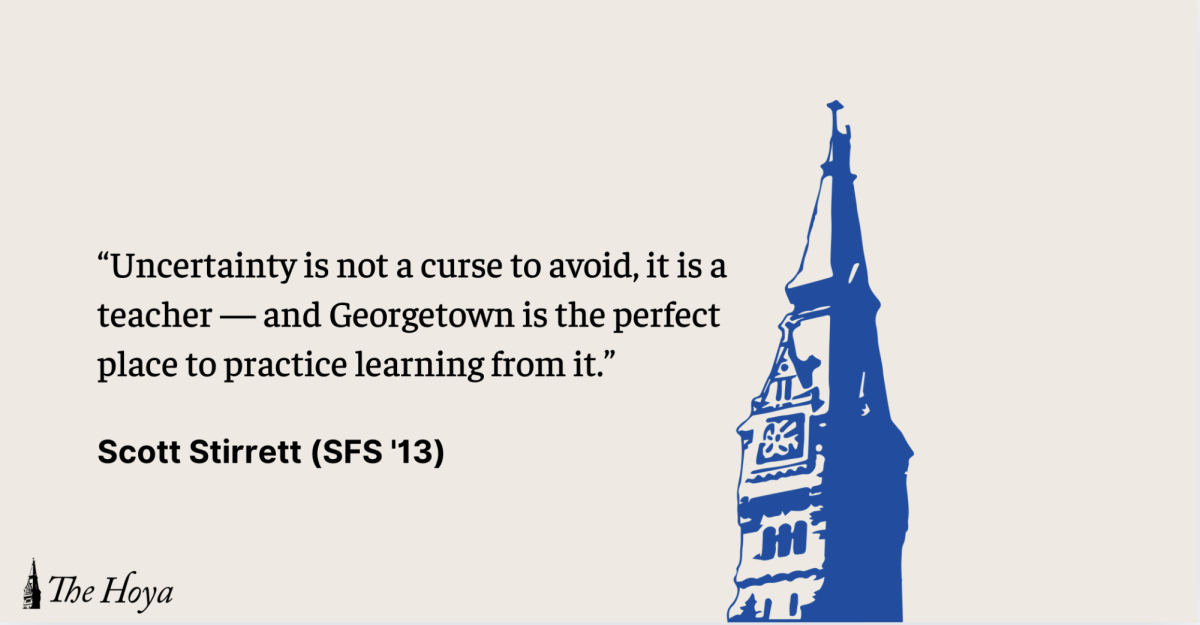To the Opinion section of The Hoya,
It has been a pleasure to write for you as a columnist this past semester. The slogan of your institution is to “Read the Paper.” I hope I can say I’ve done my part to make the paper worth reading.
And I think I can say that, with your help, I’ve played a small part in helping the paper be read. Our first article, on increasing accountability during the GUSA Finance and Appropriations Committee process, was followed with proposed bylaw changes to reduce the impact of individual dedication-lacking GUSA senators. Policy recommendations from our article on giving H*yas for Choice the right to reserve rooms were included in the GUSA president-elect’s policy platform. Our column on reviving the GUSA newsletter was cited in legislation that eventually compelled the Cobb-Mehta administration to send out their first in nine months.
The point of this is not self-congratulations — it’s to show that what is published in The Hoya can have a real, tangible and immediate impact. It can genuinely lead to policy changes and policy progress. The paper still matters.
So, in my final set of policy recommendations this semester to an institution I perceive as having fallen “ill,” I want you, the Opinion section of The Hoya, to embrace the role a student newspaper can play in advancing and informing community discourse.
Understanding that role, what then are my recommendations? Publish pieces which present personal takes on university and student groups’ policies or cultures. Publish pieces that are precise and specific about your recommended changes. Act affirmatively to maximize your ability to facilitate change.
In my view, The Hoya’s Opinion section has failed to do so in recent semesters. While it is important to note that general consumption of college newspapers has been declining across the United States, Opinion (and The Hoya more broadly) must also take some responsibility for the broader perception of the paper’s general declining readership and impact, something showcased in the GUSA Media Board funding justifications.
A substantial portion of the Opinion pieces published this semester have been personal, reflective and abstract. Generally, authors have made their own emotional journeys the center of their pieces, working through their feelings to end up recommending broad yet vague changes to the attitudes of the student body or administration.
This sort of introspection can be valuable, especially when published in small and punctuated doses. When it becomes near-hegemonic, though, an opinion section begins to lose its value. An opinion section is, after all, part of a newspaper, whose very name suggests it should contain content pertaining to the news. It is decidedly not a public, collaborative, student diary. I make these purposefully provocative because I want themto have an impact; I know firsthand the value that this paper’s Opinion section can have.
This is the section that once exposed the racial depravity of the Georgetown University Alumni and Student Federal Credit Union’s recruitment process, leading it to change its culture. This is the section that identified the need and advocated for a Disability Cultural Center two years before the one we have now was opened. This is the section that published the initial call by Fr. Matthew Carnes, S.J., for the university to acknowledge and honor the GU272.
I know Opinion can move in that direction once again, even in the face of a systemically difficult environment for the college newspaper. Publish thoughtful solutions to the crises in our community as they arise. Solicit student articles that recommend precise changes to university policy that concretely affect our lives. Make the paper worth reading.
So, as we head into next semester, I want to again say thanks for the opportunity to make an impact. The future of The Hoya can be bright. To ensure that it is, we must be honest with ourselves about the challenges the paper faces, some systemic, some self- imposed. Now is not the time to play it safe. Now is the time for tough conversations and bold change. Let that start with transforming Opinion.
With respect,
Saahil Rao is a sophomore in the School of Foreign Service. This is the fourth installment of his column, “Institutions and their Ills.”


